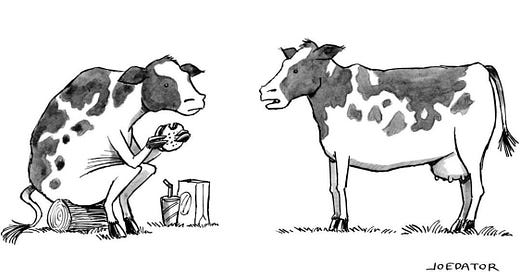I'm just here for the comments.
What I talk about when I talk about public opinion on cultured meat, microbe magic, and the scourge of palm oil.
Tickets for my east coast event on April 6th are available now. It will be a great conversation with thought-provoking bites hosted by Farm to People in Brooklyn.
On with the show. Last week, Kim Severson of the New York Times wrote about cultured chicken. The New Secret Chicken Recipe? Animal Cells…
Keep reading with a 7-day free trial
Subscribe to Technically Food to keep reading this post and get 7 days of free access to the full post archives.



